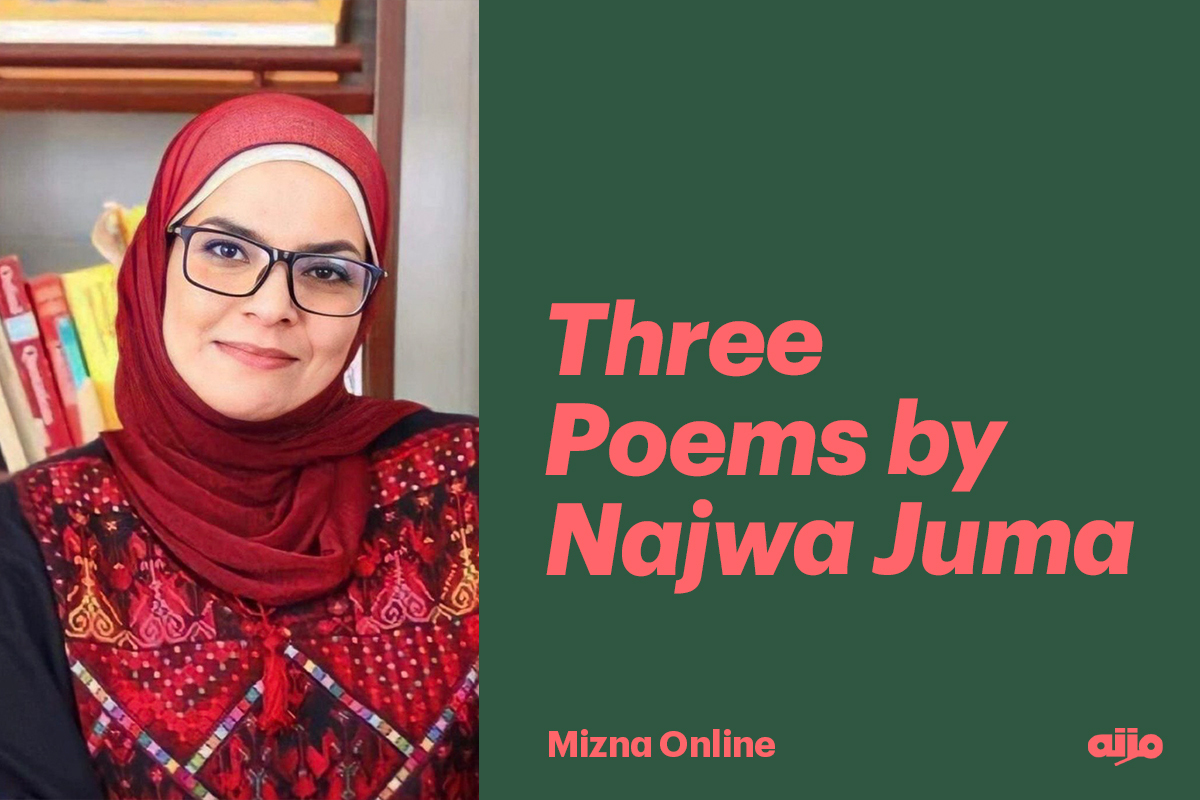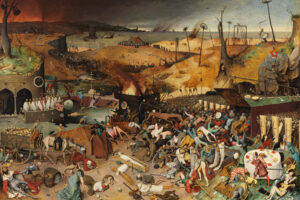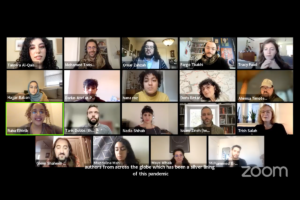
December 21, 2023
Three Poems
Today, Mizna is honored to publish this small folio of poems by the brilliant Gazan poet Najwa Juma, some of which have been previously published with AGITATE. As we pass day 75 of the genocide in Gaza, Juma’s words arrive to me both unflinchingly heavy with the wounds of catastrophe (“The night pirates attacked the city / stole its stars, packed them into caravans of ruins”) but also ready to insist on Palestinian life, despite (“There is no salvation but return”). Beginning with a demand for dignity, holding us through images of fallen stars, and arriving at an impossible music, these poems embody a resistive spirit of a people who refuse, with the whole of our bodies and voices, to die.
—George Abraham, Executive Editor of Mizna
Then we can freely break out
a song of eternity
on the hill of slaughter,
until the ones who were killed say loudly:
Here we returned, and this is the beginning of infinity.
—Najwa Juma, SONGS OF LIFE
WE WANT A NORMAL DEATH
To come without fear
Or anticipation or dread
To be light without weight
To come silently
In its usual color
With its expected pallor
And its ancient coldness.
We don’t want a loud death
Scattered with body parts.
Oh death, please grant us
An ordinary death!
THE FUGITIVE MOON
The night pirates attacked the city,
stole its stars, packed them into caravans of ruins
while the world was sleeping,
sleeping with full eyelids
and left the city sinking into darkness, bleeding, terrified.
Only the moon stayed awake,
gathering the city kids
who could not sleep
to tell them the story of the fugitive star.
Perhaps it would distract them from their terror and the noise.
The noise hit the heads
And rose to the sky,
thundered inside the head of the moon.
The moon closed its ears.
The noise penetrated his brain,
fluttering with its convolutions.
It expelled its cells and resided in their place.
Small eyes filled with despair.
The darkness frightened them,
waiting for the story to sleep
to escape death
as the noise around them escalated.
Only the moon could hear it,
a huge roar.
The moon screamed.
He wanted to complete the story.
Children must sleep
but he couldn’t stand the noise.
The moon decided to flee.
He escaped within the edges of the story.
He held the collar of the fleeing star
and they disappeared together.
The darkness remained,
wandering around the city,
and the noise continued
while terrified spirits wandered
in the waiting space.
SONGS OF LIFE
Here, there or everywhere,
you find those going to death,
by land by sea, or air,
bombing, burning, or suffocating.
There is no salvation but return,
to ask the grandparents chanting
songs of farewell to burn for.
Then we can freely break out
a song of eternity
on the hill of slaughter,
until the ones who were killed say loudly:
Here we returned, and this is the beginning of infinity.
Najwa Juma is a Palestinian teacher, translator, writer, and activist from Gaza, who is a member of the General Union for Palestinian Writers. She received a bachelor’s degree in English literature before continuing her studies in the field of education, subsequently working as a teacher for thirteen years. She has published two short story collections and several articles discussing the context in which Palestinian women live. She is one of the translators of the anthology collection 48 Palestinian Short Stories (Inner Child Press, 2023). She is currently an asylum seeker in Germany while her family is in Gaza. They’re hoping for family reunification.

Toward a Free Palestine: Resources to Learn About and Act for Palestine
We are proud to present this text as part of a list of resources to take action for and learn about Palestine, as well as works by Palestinian artists, writers, activists, and cultural workers.












